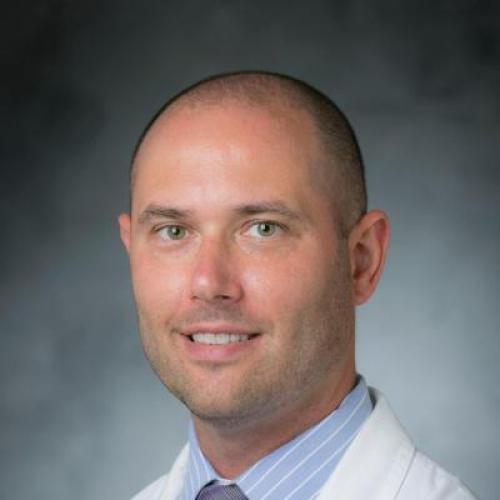
Peter Fecci
Professor of NeurosurgeryOverview
As the Director of both the Brain Tumor Immunotherapy Program and the Center for Brain and Spine Metastasis at Duke University, I focus our programmatic interests on the design, optimization, and monitoring of immune-based treatment platforms for patients with intracranial tumors, whether primary or metastatic. Within this broad scope, however, my own group looks more specifically at limitations to immunotherapeutic success, with a particular focus on understanding and reversing T cell dysfunction in patients with glioblastoma (GBM) and brain metastases. We employ a systematic approach to categorizing T cell dysfunction (Woroniecka et al, Clin Cancer Res 2018 Aug 15;24(16):3792-3802), and whereas our earlier work addressed concerns for regulatory T cell-induced tolerance, we now heavily study T cell ignorance and exhaustion, as well. Regarding the former, we recently published the novel phenomenon of S1P1-mediated bone marrow T cell sequestration in patients with intracranial tumors (Chongsathidkiet et al, Nat Medicine 2018 Sep;24(9):1459-1468). Regarding the latter, we have likewise recently identified and characterized exhaustion as a significant limitation to T-cell function within GBM (Woroniecka et al, Clin Cancer Res 2018 Sep 1;24(17):4175-4186). I very much look to collaboratively integrate our approaches with others investigating innovative treatment options. I continue my focus on combining strategies for reversing T cell deficits with current and novel immune-based platforms as a means of deriving and improving rational and precise anti-tumor therapies. It is my sincerest desire to forge a career focused on co-operative, multi-disciplinary, organized brain tumor therapy. Ultimately, my goal is to help coordinate the efforts of a streamlined and effective center for brain tumor research and clinical care. I hope to play some role in ushering in a period where the science and treatment arms of brain tumor therapy suffer no disjoint, but instead represent the convergent efforts of researchers, neuro-oncologists, medical oncologists, radiation oncologists, biomedical engineers, and neurosurgeons alike. I hope to see such synergy become standard of care.
Positions
Professor of Neurosurgery in the School of Medicine
2022 School of Medicine
Professor in Pathology in the School of Medicine
2022 School of Medicine
Associate Professor of Biomedical Engineering in the Pratt School of Engineering
2021 Pratt School of Engineering
Associate Professor in Integrative Immunobiology in the School of Medicine
2020 School of Medicine
Member of the Duke Cancer Institute in the School of Medicine
2015 School of Medicine
Education
M.D. 2007
2007 Duke University, School of Medicine
Ph.D. 2007
2007 Duke University
Internship, GENERAL SURGERY
2008 Massachusetts General Hospital
Residency, NEUROSURGERY
2013 Massachusetts General Hospital
Postdoctoral Fellow
2012 Dana Farber Cancer Institute
Publications, Grants & Awards
DCI Centers, Cancer Types & Labs
Offices & Contact
Durham, NC
27710
